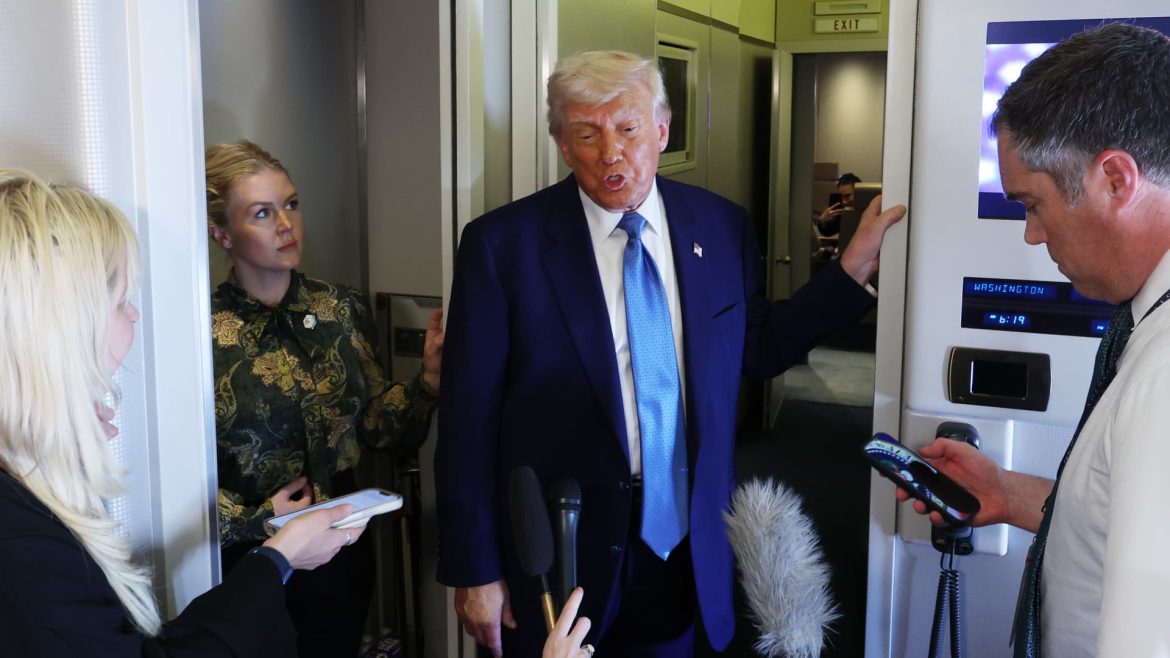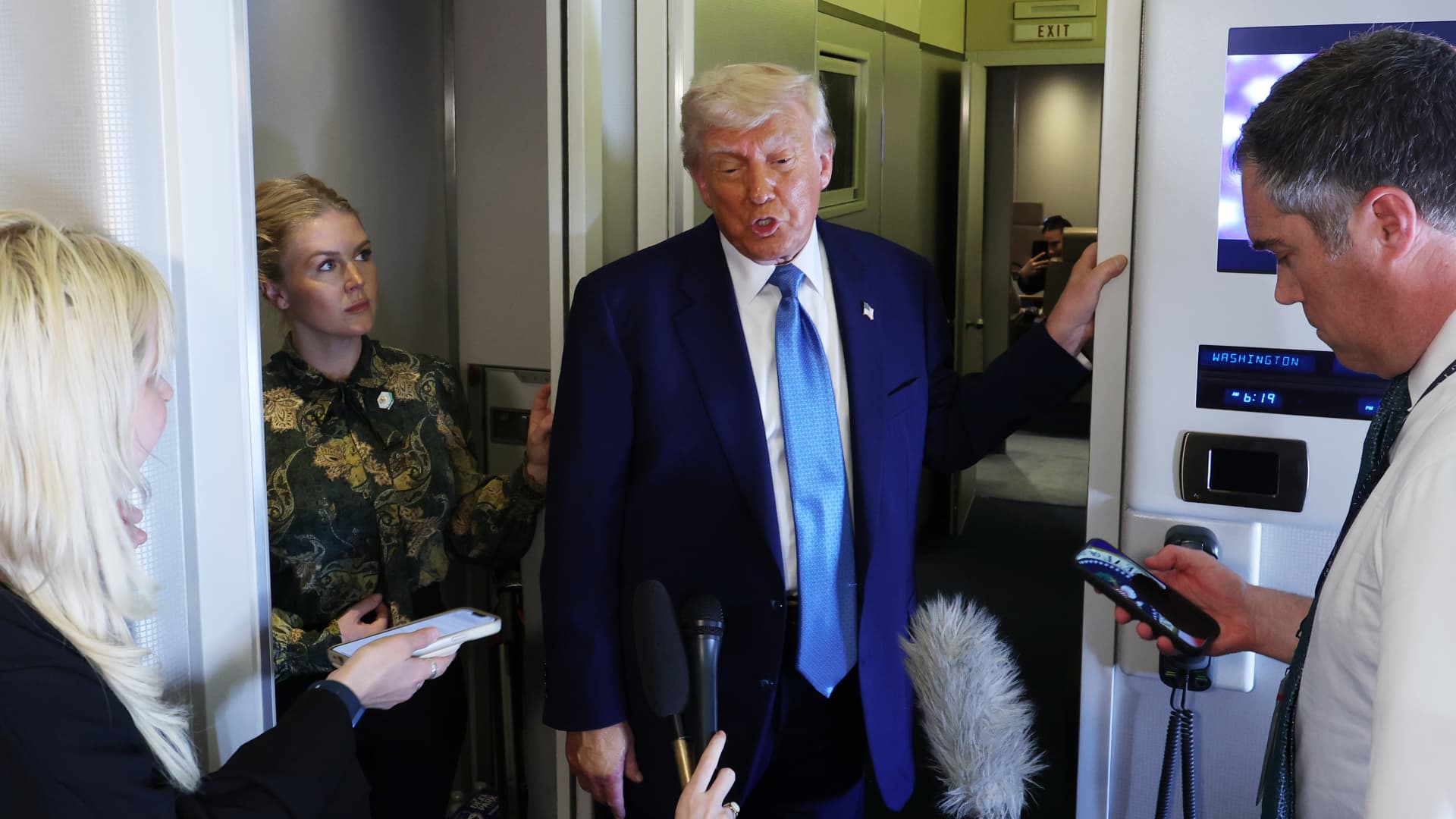Clash of Titans: The Heated Exchanges Between Donald Trump and Musical Icons Bruce Springsteen and Taylor Swift
The recent barrage of verbal attacks and counterattacks between Donald Trump and celebrated musicians Bruce Springsteen and Taylor Swift has become a striking emblem of the cultural-political divide gripping the United States. This contentious interaction reflects not only a battle over political ideologies but also exposes the potent role of celebrity influence in shaping public discourse. The developments surrounding these exchanges offer an interesting glimpse into the intersection of politics, popular culture, and media in the current climate.
The Spark: Springsteen’s Fiery Condemnations
During the kickoff of his European tour in Manchester, England, Bruce Springsteen unleashed a series of impassioned speeches condemning the Trump administration. Characterizing the leadership as “corrupt, incompetent and treasonous,” Springsteen didn’t hesitate to call out the policies and behaviors he viewed as detrimental to American democracy and its working-class citizens. His blunt language and emotional tone underscored the depth of his disapproval, aligning him with a tradition of artists using their platform to speak truth to power.
Springsteen’s verbal onslaught went beyond mere dissatisfaction; he accused the administration of “taking sadistic pleasure in the pain they inflict on loyal American workers” and urged his audience to “raise your voices against authoritarianism.” These statements were widely reported and discussed, amplifying the cultural message he intended to send.
Trump’s Response: Insults and Deflections
Not one to remain silent, President Donald Trump retaliated swiftly via social media platforms, particularly his own Truth Social. Trump’s rebuttals were marked by sharp, personal insults aimed directly at Springsteen. He labeled the musician as a “Highly Overrated Bruce Springsteen,” called him a “pushy, obnoxious JERK,” and disparaged his intelligence by calling him “dumb as a rock.” Further lashing out, Trump urged Springsteen to “keep his mouth shut,” particularly highlighting Springsteen’s previous support for President Joe Biden, positioning such actions as hypocritical or disloyal.
Alongside these attacks, Trump also directed disparagement toward Taylor Swift, another prominent New Jersey native and music icon, accusing her of no longer being “hot” — a sharp reversal from his prior praise when she was seen as politically neutral or supportive. This pivot followed Swift’s public endorsement of Democratic candidates and critiques of Trump, illustrating how celebrity political affiliations can provoke strong presidential reactions.
The Supreme Court Angle and Broader Political Context
Trump’s contentious tone was not limited to celebrity critiques; he also attacked the U.S. Supreme Court, particularly in relation to oral arguments about his proposed executive order ending birthright citizenship. He accused the court of being “played” by what he termed the “radical left losers.” These comments signaled Trump’s mounting frustration with legal and institutional challenges frustrating his political agenda.
This volatile backdrop intensified the atmosphere surrounding the celebrity disputes, as Trump simultaneously confronted multiple fronts—political, judicial, and cultural—reflecting his combative style and use of social media to push his narrative.
The Cultural Significance: Celebrities as Political Actors
The conflict between Trump and these musicians highlights how entertainers have increasingly become political actors in the American landscape. Springsteen and Swift wield enormous cultural capital and use their platforms to influence political opinion, mobilize voters, and critique leadership. Their appeals resonate deeply with large constituencies who view the arts as entwined with societal values and justice.
Conversely, the president’s personal attacks reveal his acute awareness of the power of celebrity endorsements and criticisms. By embarrassing and discrediting high-profile critics, Trump aims to undermine their influence on public opinion. This dynamic creates a feedback loop wherein political divides are amplified by celebrity involvement, blurring lines between culture wars and electoral politics.
Impact on Public Discourse and Political Engagement
Such public sparring may polarize audiences, reinforcing existing allegiances on both sides. Supporters of Springsteen and Swift may find renewed motivation to engage politically against Trump, while his base may rally more fervently behind a leader who confronts “liberal elites” and cultural opposers. It underscores the fragmented nature of modern American society, where even cultural icons are enlisted as proxies in broader ideological battles.
Media coverage—ranging from straightforward reporting to commentary and satire—further spins these exchanges, ensuring they remain in the public eye and contributing to an ongoing national conversation about leadership, values, and the role of dissent.
Conclusion: A Symbolic Microcosm of American Division
The escalating rhetoric between Donald Trump and iconic musicians Bruce Springsteen and Taylor Swift serves as a vivid microcosm of the intense political and cultural divides facing the United States today. Beyond mere celebrity feuds, these confrontations represent clashing worldviews and the expanding role of public figures in shaping political discourse. As these interactions continue, they challenge the public to consider not only the substance behind the insults but also the broader implications for democracy, civic engagement, and the cultural fabric of the nation.
This saga reminds us that in today’s highly mediated environment, political battles are fought not only in legislative halls and courts but also on concert stages and social media feeds, shaping perceptions and allegiances with every word exchanged.





